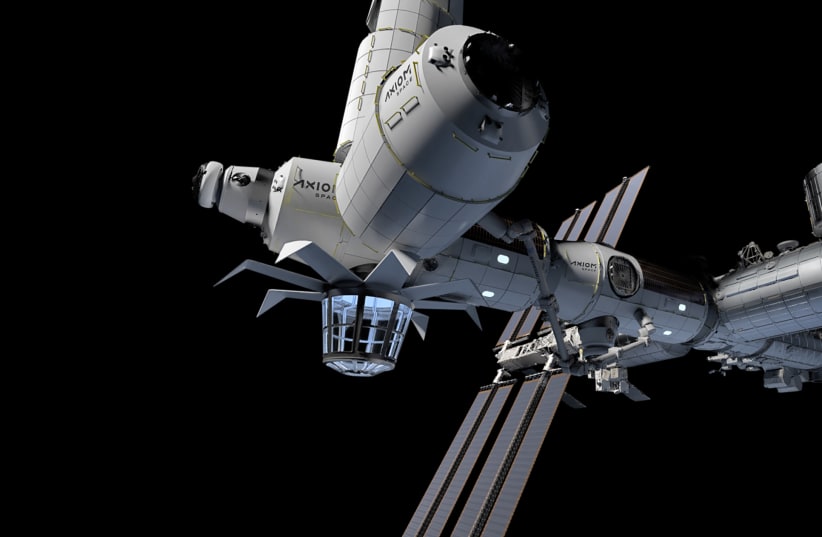The Axiom Mission 1 (Ax-1) flight is being arranged with NASA and will launch on a SpaceX Dragon spacecraft no earlier than January 2022 subject to approval from NASA and its international partners.
The first private ISS crew in the history of humankind has been assembled.Commander Michael López-Alegría Mission Pilot Larry Connor Mission Specialist Mark PathyMission Specialist Eytan Stibbe Axiom Mission 1 (Ax-1): The start of a new era. pic.twitter.com/vBlr0ASRhj
— Axiom Space (@Axiom_Space) January 26, 2021
López-Alegría, a former NASA astronaut in the past and Axiom's vice president, will serve as the crew's commander. López-Alegría flew to space four times over his 20-year career at NASA and was last at the ISS in 2007. He holds NASA records for the most Extravehicular Activities (EVA) or "space walks" with 10 space walks and the most cumulative EVA time with 67 hours and 40 minutes.
Pathy will be Canada's 11th astronaut and Connor will be the first private mission pilot in the annals of spaceflight and, at 71-years-old, will be the second oldest person to fly into space, according to Scientific American. The oldest person to fly into space was John Glenn, who made his second spaceflight at the age of 77.
Stibbe and Pathy will serve as mission specialists on the crew.
"This collection of pioneers – the first space crew of its kind – represents a defining moment in humanity’s eternal pursuit of exploration and progress,” said López-Alegría in a press release. “I know from firsthand experience that what humans encounter in space is profound and propels them to make more meaningful contributions on returning to Earth. And as much as any astronaut who has come before them, the members of this crew have accomplished the sorts of things in life that equip them to accept that responsibility, act on that revelation, and make a truly global impact."
Former NASA astronaut Peggy Whitson will serve as the mission's backup commander and John Shoffner of Knoxville, Tennessee will be the backup mission pilot.
The crew will live aboard the US segment of the ISS for about eight days and participate in research and philanthropic projects.
Connow will collaborate with the Mayo Clinic and Cleveland Clinic on research projects and provide instructional lessons to students at Dayton Early College Academy in his hometown of Dayton, Ohio.
Pathy is collaborating with the Canadian Space Agency and the Montreal Children's Hospital and will work on health-related research projects during the mission.
Stibbe will conduct scientific experiments for Israeli researchers and entrepreneurs in coordination with the Ramon Foundation and the Israel Space Agency at the Science and Technology Ministry and will undertake educational activities from orbit to inspire Israeli youth and educators.
It took more than 17 years to reach a decision to send another Israeli into space after the disintegration of the Columbia space shuttle in February 2003, in which Israel’s first astronaut, the late Ilan Ramon, was killed just as the shuttle re-entered Earth’s atmosphere.
Col. (res.) Stibbe, spent 43 years in the Israel Air Force, flying thousands of hours in Skyhawks, Phantom, and F-16s. He also served as a flight instructor at the Israeli Air Force Flight Academy from 2013-2019.
During the First Lebanon War, he downed four Syrian planes in one sortie: two Sukhoi SU-22s, a MiG-23, and an Aérospatiale Gazelle helicopter. Two days earlier, he helped take down another MiG-23.
Stibbe had said to Ramon’s widow, Rona, that he would like to continue her husband’s dream, and that became part of the mutual target of Stibbe, the Ramon family and the Ramon Foundation.
“We sought to put together a crew for this historic mission that had demonstrated a lifelong commitment to improving the lives of the people on Earth, and I’m glad to say we’ve done that with this group,” said Axiom Space President & CEO Michael Suffredini in the press release. “This is just the first of several Axiom Space crews whose private missions to the International Space Station will truly inaugurate an expansive future for humans in space – and make a meaningful difference in the world when they return home.”
Axiom plans to launch private and national astronaut flights to the ISS up to twice per year, while simultaneously constructing its own privately funded space station. The Axiom Station's modules will be attached to the Harmony node of the ISS as early as 2024. When the ISS is retired, the Axiom Station will separate to become the world's first free-flying, privately developed, internationally available space station.
Greer Fay Cashman and Anna Ahronheim contributed to this report.
